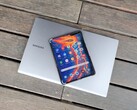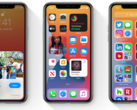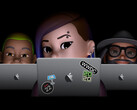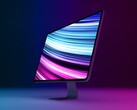We have been predicting this for some time, and it has finally happened. Apple has announced transition of the entire Mac lineup to Apple silicon with an aim of enabling developers to create common experiences for the entire Apple ecosystem right from the iPhone to the Mac.
In the pre-recorded keynote, Apple demoed running a full instance of macOS Big Sur on the A12Z Bionic SoC. macOS Big Sur incorporates frameworks that enable developers to seamlessly convert their apps to run on Apple's custom silicon. Companies such as Microsoft and Adobe are all set to soon release Office 365 and Creative Cloud apps that run natively on Apple SoCs with other developers expected to follow suit over the coming months. Apple's own Pro apps such as Final Cut Pro and Logic Pro will have support for Apple silicon from day 1.
Apple expects to complete transitioning the entire Mac lineup to ARM in about two years time. New Intel-based Macs are still in the offing this year and Apple has promised complete support and updates to macOS till the lifetime of these devices. Moving from Intel to ARM is historic for Apple just like how it was during the transition from IBM PowerPC to Intel. And similar to the architecture transition back then, Apple is introducing a new, faster emulation layer called Rosetta 2 that almost blurs the line between Intel and ARM apps on the Mac.
In most cases, the user would be blissfully unaware of the underlying app architecture. Apple even demonstrated Shadow of the Tomb Raider running fairly well under emulation. The company also showed off seamless 4K editing in Final Cut Pro and working on a 5 GB PSD file in Photoshop without any perceivable performance loss. The move to ARM also means that iPhone and iPad apps can now natively run on macOS using Universal 2 binaries without any modifications.
Developers can get started with coding for Apple silicon right away via the Universal App Quick Start Program. This provides a package comprised of the required documentation, forums support, beta versions of macOS Big Sur, and Xcode 12. Developers also get access to a limited-time use of a Developer Transition Kit (DTK) to test their apps. The DTK is essentially a Mac Mini powered by the A12Z Bionic and has 16 GB RAM and a 512 GB SSD. The DTK can be availed at developer.apple.com for US$500.




















